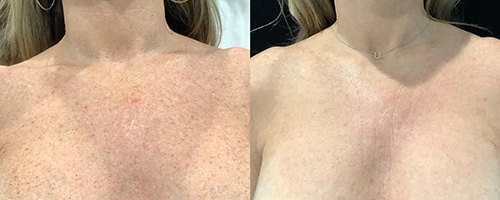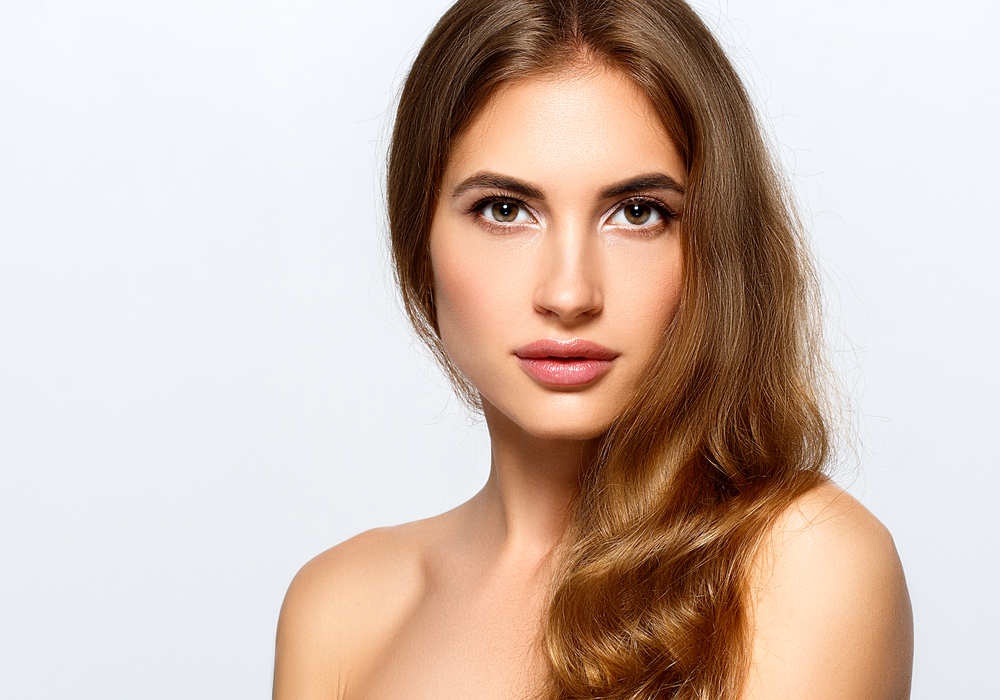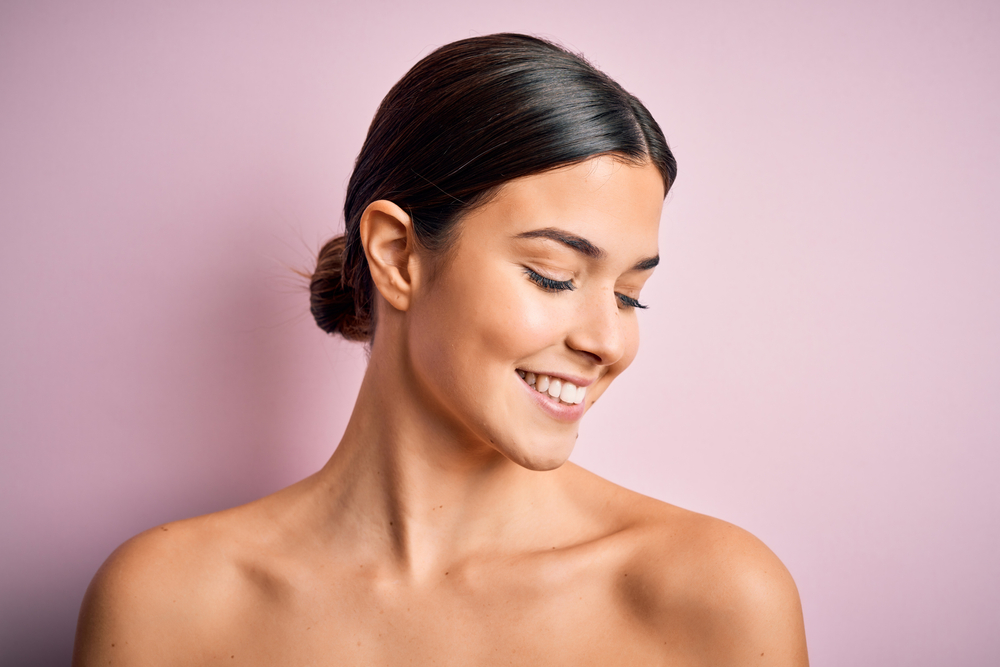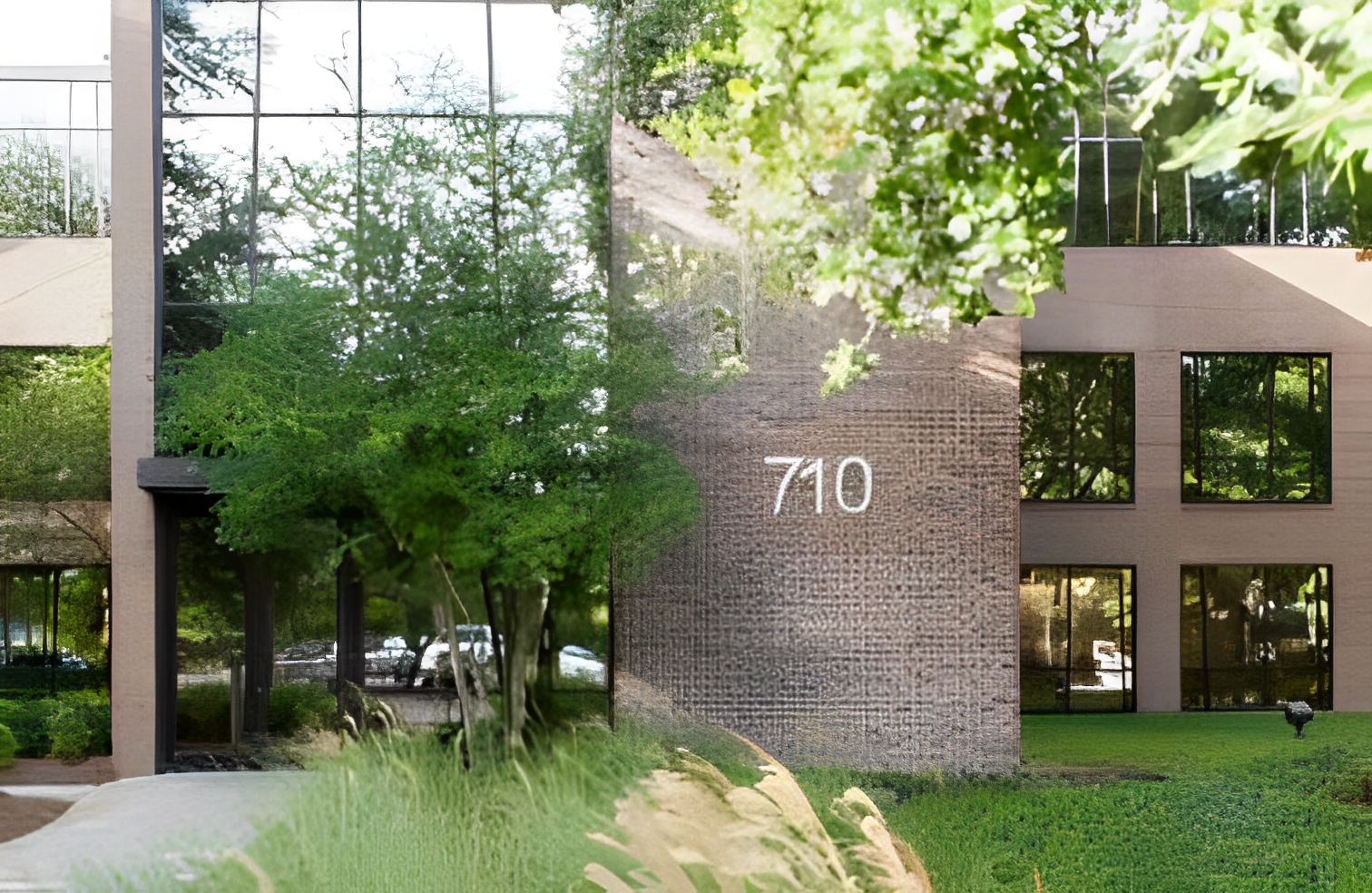At AestheticSpa Cosmetic Skin & Laser Center, led by Dr. Christy L. Cone, a diplomat of the American Academy of Aesthetic Medicine, we are excited to offer Photorejuvenation® with Intense Pulsed Light (IPL).
IPL is a skin rejuvenation service that can treat a wide range of facial concerns, such as broken capillaries, benign brown pigment, sun spots, and uneven skin tones. It is also effective for improving rosacea and treating facial redness and can increase collagen production to improve acne scars when performed in addition to the Laser Genesis treatment.

At Aesthetispa, we offer Lumenis M22 and Sciton BBL (BroadBand Light) for IPL treatment. During your consultation, we will discuss the different treatment options to determine the best fit for your individual needs.
Intense Pulsed Light (IPL) technology delivers a broad spectrum of light onto the skin’s surface to correct a variety of benign skin conditions, such as facial skin imperfections, the signs of sun damage, birthmarks, unwanted hair, small veins, and other blemishes. The wavelengths of light penetrate deep into the skin tissue to stimulate the cells beneath the skin’s surface, rejuvenating the skin and removing sun damage. It offers a safe, non-invasive solution that can be tailored to your individual condition and skin type, providing superior cosmetic results and outstanding satisfaction.
Since IPL targets both brown and red colors in the skin, Photorejuvenation® with IPL can simultaneously treat facial redness, small blood vessels, sun damage, benign brown pigmentation, rosacea, and uneven skin tones. Collagen is also stimulated during the IPL Photorejuvenation® process, leading to improvement in pore size, fine lines, and texture. Commonly the skin will appear younger after a series of IPL treatments.
IPL Treatment Areas
Any body part (except eyes) can be treated with IPL. The most commonly treated areas are face, neck, chest, and upper back since these areas typically have the most sun damage and redness.
How Do I Prepare For My IPL Treatments?
We cannot treat tanned patients with IPL. Therefore, it is very important for you to stay out of the sun for 4 weeks prior to treatment or use a broad-spectrum sunblock, with an SPF of 30 or higher, on a daily basis for one month prior to treatment. You should also stop any retinoids, such as Retin-A, Tazorac, Retinol, five days prior to your treatment. Certain oral medications increase photosensitivity and prohibit treatment. Please provide a complete list of medications and supplements to your provider at your initial visit and notify us of any changes at each session.
The Intense Pulsed Light Procedure
A cold gel is usually applied to the area to be treated, and you may be given dark glasses to protect your eyes from the bright light. The smooth glass surface of the IPL handpiece is gently applied to your skin and pulses of light are applied. You may feel a slight sting, like the snapping of small rubber band. Occasionally, if we are working just to reduce pigment, we will pre-cool and post-cool an area with gel packs to help with the discomfort.
How Many IPL Treatments Can I Expect?
Depending on the number of conditions you are treating, and the severity of the individual problem, a series of four to six treatment sessions may be recommended. It usually takes several treatments to get the desired results. If we are working to decrease facial redness or rosacea, it can take 6 or more treatments.

What Can I Expect After An Intense Pulsed Light Treatment?
The final result of IPL Photorejuvenation® is clearer, younger appearing skin. Immediately after treatment you may see any treated sun spots become slightly darker. It can take up to 3 weeks for the discoloration to slough off, almost like little cookie crumbs coming to the surface of the skin. The treated area may have a slight sunburned sensation for a few days following the treatment. There is usually little to no downtime, but in some cases it may look like a superficial burn and in rare cases a blister may appear. It is very important to follow all post treatment instructions and remember that you will be much more sun sensitive for several days after the treatment. A broad-spectrum sunscreen with both UVA and UVB protection having an SPF of 30 or higher should be used on a daily basis after treatment.
Is IPL Suitable for All Skin Types?
IPL (Intense Pulsed Light) Photorejuvenation is most effective for people with lighter skin tones (Fitzpatrick skin types I to III). This is because darker skin tones can absorb more light, increasing the risk of burns or hyperpigmentation.
Keep in mind that advancements in IPL technology allow for treatments on some darker skin tones when administered by experienced professionals using specific settings. It's essential to consult a qualified provider – like those at AesthetiSpa Cosmetic Skin & Laser Center – to assess your skin type and ensure IPL is a safe and effective option.
Is IPL Treatment Painful or Uncomfortable?
Most patients describe IPL treatment as mildly uncomfortable rather than painful. The sensation during the procedure is often compared to snapping a rubber band on the skin. Modern IPL devices also, in many cases, include cooling mechanisms to reduce discomfort during the session.
Individual pain tolerance varies. However, most patients find the service to be tolerable without the need for anesthetics. Some providers also offer numbing creams for those with heightened sensitivity.
Post-treatment, you may experience mild redness or warmth – like a mild sunburn. These effects usually subside within a few hours, though.
Is IPL Photorejuvenation Safe for Sensitive Skin Areas, Like Around the Eyes or Mouth?
IPL is generally safe for most areas of the face. However, caution is advised around sensitive regions such as the eyes and mouth.
Direct IPL exposure to the eyes can be harmful. This is why protective eyewear is mandatory during treatment.
For areas like the mouth or delicate skin around the eyes, your provider will adjust the settings or use protective coverings. Consulting an experienced practitioner ensures these sensitive areas are treated safely without compromising results.
Will IPL Photorejuvenation Make My Skin More Sensitive to Sunlight?
After IPL treatment, your skin will become temporarily more sensitive to sunlight. The therapy increases photosensitivity and makes the skin more susceptible to UV damage.
To combat sun sensitivity, be sure to do the following:
- Apply a broad-spectrum sunscreen of SPF 30 or higher daily
- Avoid direct sun exposure
- Wear protective clothing during recovery
Remember that sun exposure can lead to hyperpigmentation and reduce the effectiveness of IPL Photorejuvenation.
How Does IPL Photorejuvenation Affect Hair Growth in Treated Areas?

IPL Photorejuvenation can affect hair growth in treated areas. This is because the light pulses also target pigment in hair follicles and can lead to hair reduction.
Depending on the wavelength and settings used, IPL is effective for both skin rejuvenation and hair removal. If you do not want to reduce hair in a particular area, be sure to discuss this with your provider before treatment.
Why Choose AesthetiSpa Cosmetic Skin & Laser Center?
At AesthetiSpa Cosmetic Skin & Laser Center, under the expert direction of Medical Director Christy L. Cone, MD, patients receive superior care focused exclusively on aesthetic procedures.
Dr. Cone, a board-certified physician with specialized medical aesthetics training, brings extensive cosmetic treatment experience. She leads a skilled team of dedicated nurses and skincare professionals who share a passion for facial and body rejuvenation.
With a commitment to delivering personalized results, AesthetiSpa provides the expertise and advanced care patients need to look and feel their best.
Schedule A Consultation
If you’re interested in learning more about IPL Photorejuvenation® please contact us for a consultation at 843-849-9925, or fill out our contact us form here. We will discuss your needs and concerns, and determine your best course of action.







